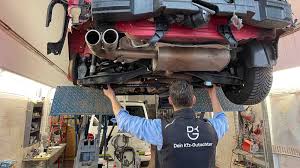In the realm of automotive transactions, whether it’s buying, selling, or insuring a kfz gutachter neu wulmstorf, one crucial figure often remains behind the scenes: the vehicle appraiser. These professionals play a pivotal role in determining the value and condition of automobiles, ensuring fair deals and safe rides for all involved parties.
What Does a Vehicle Appraiser Do?
Vehicle appraisers are experts trained to assess the value, condition, and safety of vehicles. They employ a combination of technical knowledge, experience, and specialized tools to evaluate various aspects of an automobile. From inspecting the exterior and interior to scrutinizing mechanical components, their assessment covers every facet that contributes to a vehicle’s worth and roadworthiness.
Importance of Vehicle Appraisers
- Ensuring Fair Transactions: Whether it’s a private sale, trade-in, or insurance claim, the accuracy of a vehicle’s appraisal is paramount. Appraisers provide an unbiased evaluation based on market trends, vehicle condition, and other relevant factors, ensuring that both buyers and sellers get a fair deal.
- Safety Assurance: Beyond monetary value, vehicle appraisers also assess safety aspects. They check critical components such as brakes, tires, suspension, and structural integrity to ensure that the vehicle meets safety standards. This aspect is particularly crucial in preventing accidents and protecting lives on the road.
- Mitigating Risk: For insurance companies, accurate appraisals help in assessing risk and determining premiums. By providing precise evaluations of a vehicle’s condition and potential liabilities, appraisers assist insurers in making informed decisions, ultimately reducing the risk of financial loss.
The Appraisal Process
The appraisal process typically involves several steps:
- Visual Inspection: The appraiser visually inspects the vehicle, noting any visible damages or defects on both the exterior and interior.
- Documentation Review: They examine relevant documents such as maintenance records, vehicle history reports, and ownership documentation to gather additional information about the vehicle’s history and condition.
- Test Drive (if applicable): In some cases, appraisers may conduct test drives to assess the vehicle’s performance and handling on the road.
- Market Analysis: Using their knowledge of the automotive market and industry trends, appraisers compare the vehicle against similar models to determine its fair market value.
- Report Preparation: Finally, the appraiser compiles their findings into a detailed report, including an assessment of the vehicle’s condition, market value, and any recommended repairs or maintenance.
Conclusion
Vehicle appraisers play a crucial role in automotive transactions by ensuring fair value, safety, and risk mitigation. Their expertise and thorough evaluation process contribute to transparent and trustworthy dealings in the automotive industry. Whether you’re buying, selling, or insuring a vehicle, consulting a qualified vehicle appraiser can provide peace of mind and help you make informed decisions.







